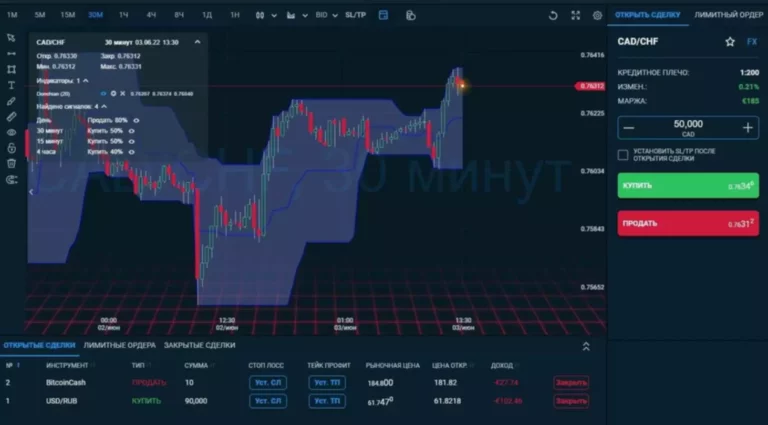
Close

Content
When it comes to exchange traded derivatives, stocks are the most common underlying assets. There are several stock futures and options available in the market upon which you can take leveraged positions based on their price movements. Some derivatives (especially swaps) expose investors to counterparty risk, or risk arising from the other party in a financial transaction. Counterparty risk results from the differences in the current price versus the expected future settlement price.[72] Different types of derivatives have different levels of counter party risk. For example, standardized what is an etd stock options by law require the party at risk to have a certain amount deposited with the exchange, showing that they can pay for any losses; banks that help businesses swap variable for fixed rates on loans may do credit checks on both parties.
Commodities markets were initially used to hedge risks but have recently become highly speculative. Exchange-traded derivatives, which involve commodities as the underlying asset, are traded on price fluctuations. Volatility (finance) This chapter considers the relationship between the exchange traded and OTC derivatives markets. It begins by summarising the characteristics of both markets, before exploring the implications of differences in product design, trading environment, liquidity, administration and cost, and regulation and credit risk.
Donohue oversees the world’s leading and most diverse derivatives marketplace and a global workforce of more than 2,000 employees. He has also led the completion of more than $20 billion in mergers and acquisitions, including CME’s historic acquisitions of the Chicago Board of Trade (CBOT) in 2007 and the New York Mercantile Exchange (NYMEX) in 2008. Donohue serves on CME Group’s board of directors, as well as the boards of BM&FBovespa; (the largest exchange company in Latin America), the World Federation of Exchanges and the Managed Funds Association. OTCs are mainly available to big players in the market, like large corporations and major financial organisations. The OTC market is usually more complicated and needs a lot of expertise and money from investors, which makes it harder for regular traders to get involved. High liquidity – The ETD market https://www.xcritical.com/ is highly liquid, meaning that ETDs have considerable market depth.
Intrinsic to simplifying and standardising Exchange Traded Derivatives processing – post-trade. For instance, the Options Clearing Corporation (OCC) reported clearing nearly 830 million contracts in the month of February 2021 alone, up 47.4 percent compared to February 2020. The Cboe Global Markets (Cboe) is the largest options exchange in the world, with an average daily volume in 2021 of more than 12 million contracts, another record.
To exit the commitment prior to the settlement date, the holder of a futures position can close out its contract obligations by taking the opposite position on another futures contract on the same asset and settlement date. The idea behind ETDs was to create standardized contracts with uniform terms, facilitating trade and reducing counterparty risk. Over time, ETDs evolved to include various asset classes beyond agriculture, such as financial derivatives like stock index futures and interest rate futures. The need for risk management tools drove this evolution in an increasingly complex and interconnected global economy.
ICICIdirect.com is a part of ICICI Securities and offers retail trading and investment services. The existence of such contracts on WeatherComex would enable farmers to manage their risk better and plan for the financial impact of varying weather conditions. The information about ETD prices and volumes is public, which means a high level of transparency that facilitates market efficiency. Unlock compliance confidence and simplify regulatory reporting with FOW data solutions. Automating the cash-flow-processing challenge with a standard workflow and matching engine, to reduce risks and deliver transparency. Kindly, read the Advisory Guidelines for investors as prescribed by the exchange with reference to their circular dated 27th August, 2021 regarding investor awareness and safeguarding client’s assets.

Droit’s ETD Reporting delivers a comprehensive quality assurance platform to provide a consistent approach to regulatory compliance. With complete insight into each decision made and the ability to trace the logic through to the underlying source text, the product ensures clarity and accuracy in complex regulatory interpretations. While exercising and assigning options, or duringexpiry of options and futures only the price differential (i.e., theExercise Gain or the Loss) will be processed by the ETD module. However, he/she needs to have a Non-Resident External (NRE) bank account and a Repatriable Demat account.
For instance, investors can easily connect with counterparties and sell their holdings or make a reverse bet. In fact, institutional investors might opt to work directly with issuers and investment banks to create tailored investments that give them the exact risk and reward profile they seek. Streamline and expedite the ETD allocations process, with flexible calculations and real time communication between clients and brokers to ensure timely confirmation and accurate booking. Send and receive the give-ups and give-ins that enable triparty workflows between executing brokers, clearing brokers and clients providing end-to-end visibility of each trade. Being a person who is always eager to learn something new about the world and is fond of learning foreign languages, I had a lot of experience with text in various fields while working as a technical translator, technical writer for fintech products, and copywriter.
ETD contracts are available for both retail investors and big investment organisations. They can be bought and sold on a regulated brokerage, so many traders and investors can easily get them. Derivatives are often subject to the following criticisms; particularly since the 2007–2008 financial crisis, the discipline of Risk management has developed attempting to address the below and other risks – see Financial risk management § Banking. Along with many other financial products and services, derivatives reform is an element of the Dodd–Frank Wall Street Reform and Consumer Protection Act of 2010. The Act delegated many rule-making details of regulatory oversight to the Commodity Futures Trading Commission (CFTC) and those details are not finalized nor fully implemented as of late 2012. From trade notifications to allocations, reconciliation to compression, OSTTRA connects a global network of banks, clients, exchanges and CCPs to simplify ETD post-trade processing, reconcile portfolios and optimise risk and capital allocation.

Thus, some individuals and institutions will enter into a derivative contract to speculate on the value of the underlying asset. Speculators look to buy an asset in the future at a low price according to a derivative contract when the future market price is high, or to sell an asset in the future at a high price according to a derivative contract when the future market price is less. Because OTC transactions involve a direct contractual relationship between two parties each counterparty has a credit risk to the other (i.e. the risk that one party will default on its obligation).
Consequently, swaps can be in cash or collateral.Swaps can be used to hedge certain risks such as interest rate risk, or to speculate on changes in the expected direction of underlying prices. Option products have immediate value at the outset because they provide specified protection (intrinsic value) over a given time period (time value). One common form of option product familiar to many consumers is insurance for homes and automobiles. The insured would pay more for a policy with greater liability protections (intrinsic value) and one that extends for a year rather than six months (time value).
The first ever exchange-traded derivatives market was formed in the nineteenth century in Chicago, where the underlying asset was the commodity wheat. Farmers initiated this type of contract market to bring buyers closer to sellers of commodities. Soon personalized individual contracts were replaced by standardized ones regulated through a formal exchange. Derivatives have been instrumental in modernizing finance by providing access to capital to variously sized businesses. By eliminating counterparty risks and illiquidity, ETD is prioritized over OTC derivatives for the mandatory fulfilment of the contracts. They are now the traditional instruments to manage portfolio risks and link small margins with more considerable capital.
Derivatives can be used either for risk management (i.e. to “hedge” by providing offsetting compensation in case of an undesired event, a kind of “insurance”) or for speculation (i.e. making a financial “bet”). This distinction is important because the former is a prudent aspect of operations and financial management for many firms across many industries; the latter offers managers and investors a risky opportunity to increase profit, which may not be properly disclosed to stakeholders. Derivatives are one of the three main categories of financial instruments, the other two being equity (i.e., stocks or shares) and debt (i.e., bonds and mortgages). The Exchange Traded Derivatives (ETD) module of Oracle FLEXCUBE isan automated and flexible back office system with the capability to processexchange traded derivative instruments such as Options and Futures.
The stock exchange establishes all these and other rules and regulations, resulting in consistency that eliminates any difficulties for market participants and the exchange regarding contract customisation. The arbitrage-free price for a derivatives contract can be complex, and there are many different variables to consider. For futures/forwards the arbitrage free price is relatively straightforward, involving the price of the underlying together with the cost of carry (income received less interest costs), although there can be complexities. Individuals and institutions may also look for arbitrage opportunities, as when the current buying price of an asset falls below the price specified in a futures contract to sell the asset.
Hotel Korsal
Šetalište Frana Kršinića 80
20260 Korčula, Hrvatska


Telefon: +385 20 715 722
E-mail: info@hotel-korsal.com